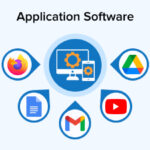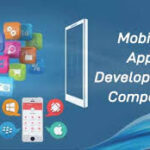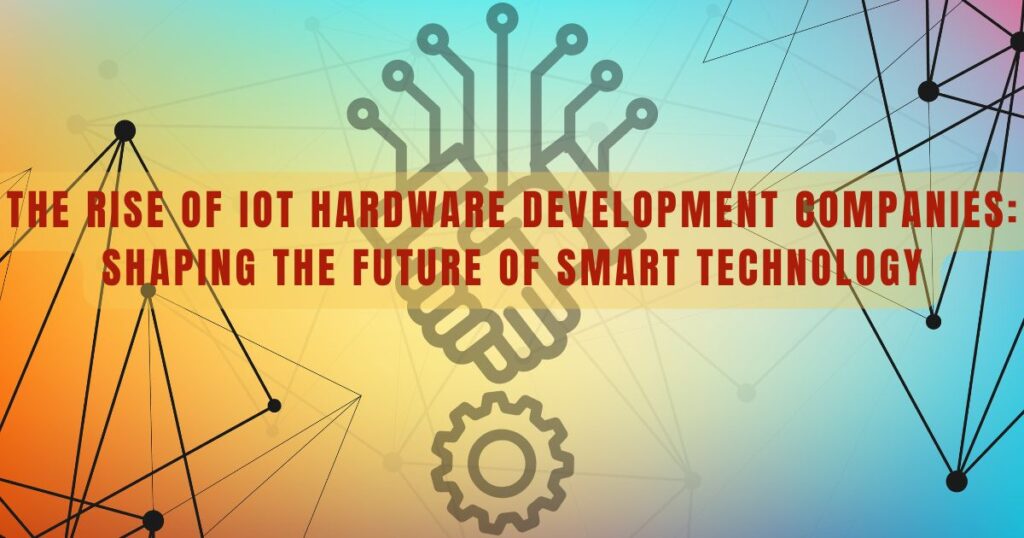Ever imagined your fridge reminding you to buy milk? Or your watch detecting early signs of illness? That’s the magic of the Internet of Things (IoT). But behind every “smart” product is a brilliant IoT hardware development company pulling the strings — designing, building, and launching the physical tech that powers the digital experience.
As the demand for intelligent devices skyrockets, these companies have become the unsung heroes of modern innovation. Let’s dive into their world and explore how they’re reshaping everything — from homes and factories to cities and lifestyles.
What is an IoT Hardware Development Company?
In simple terms, an IoT hardware development company specializes in creating the physical components — sensors, microcontrollers, communication modules, and more — that bring connectivity and intelligence to devices. These firms blend engineering, software integration, and electronics design to deliver robust IoT solutions.
The Core of IoT: Hardware vs. Software
While IoT software manages data and user interfaces, the hardware is what actually gathers real-world information. Without solid hardware design, your smart thermostat is just a fancy wall ornament.
Why Hardware Matters in IoT
Imagine building a house with no foundation. That’s what software is without reliable hardware. Durable, efficient, and custom-tailored components make IoT devices viable and scalable. The right hardware:
-
Ensures reliable data collection
-
Reduces power consumption
-
Enables secure connectivity
-
Improves product lifespan
Services Offered by IoT Hardware Development Companies
1. Custom IoT Hardware Design
At the heart of every IoT project lies bespoke hardware. Companies offering IoT hardware design services work closely with clients to develop purpose-built devices that align with specific project requirements — whether it’s for healthcare, agriculture, or industrial automation.
2. Prototyping and MVP Development
Before mass production, a Minimum Viable Product (MVP) or prototype is developed. This helps validate the concept, test its real-world application, and gather feedback for refinements.
3. PCB Layout and Fabrication
Printed Circuit Boards (PCBs) are the nervous system of IoT devices. These companies design and manufacture PCBs with precise layouts for optimized performance, heat management, and component integration.
4. Embedded Firmware Development
It’s not just the hardware — it’s what lives inside it. Embedded software controls the physical device. From sensor readings to data transmissions, well-crafted firmware is essential for efficient IoT functionality.
5. Wireless Communication Module Integration
Whether it’s Wi-Fi, Bluetooth, Zigbee, or NB-IoT, IoT devices must connect. Hardware developers integrate the right wireless modules for seamless communication.
6. Testing and Validation
No one wants a device that fails in the field. Rigorous testing ensures hardware performs under various conditions, complies with regulations, and delivers reliability.
Industries Benefiting from IoT Hardware Development
1. Smart Home Automation
From smart lights to home security systems, IoT Hardware Development Company are crafting devices that simplify everyday living and boost energy efficiency.
2. Industrial IoT (IIoT)
Manufacturers rely on IoT for predictive maintenance, asset tracking, and automation. Custom sensors and rugged hardware designs are crucial in harsh industrial environments.
3. Healthcare and Wearables
Heart rate monitors, glucose trackers, and fitness bands are all products of expert hardware design — blending compactness, durability, and accuracy.
4. Agriculture Technology
Soil sensors, smart irrigation systems, and drone integrations are revolutionizing farming, all thanks to custom-built IoT hardware.
5. Transportation and Logistics
IoT-enabled GPS trackers and real-time monitoring devices help logistics companies streamline operations and reduce costs.
Trends Driving the IoT Hardware Development Boom
Edge Computing Integration
With edge computing, devices can process data locally, reducing latency and bandwidth use. IoT hardware developers are designing systems with embedded edge processors.
Energy Efficiency and Low Power Design
Battery-powered IoT devices are everywhere. Efficient circuit design and energy-harvesting technologies are becoming standard practices.
Miniaturization
Smaller is smarter. Companies are pushing the limits of miniaturization, packing more power into compact devices for wearables and portable solutions.
AI-Enabled Hardware
Some devices don’t just collect data — they analyze it. AI chips are being integrated into hardware, enabling real-time decision-making without needing cloud processing.
Choosing the Right IoT Hardware Development Company
1. Experience and Portfolio
Look for a company with a strong track record across multiple industries. Their portfolio should reflect a deep understanding of both electronics and software ecosystems.
2. Customization Capability
No two projects are the same. Choose a firm that offers flexible, tailored solutions — not one-size-fits-all modules.
3. In-House vs. Outsourced Production
In-house design and prototyping allow for better quality control and faster iterations. Ask how much of the process is handled internally.
4. End-to-End Support
The best companies guide you from concept to launch, offering continuous support, including firmware updates and future upgrades.
How IoT Hardware Design Services Add Value
Whether you’re a startup building your first product or an enterprise scaling up, IoT hardware design services streamline development, reduce time to market, and enhance performance. These services minimize design flaws early on, avoid production setbacks, and optimize cost efficiency.
Common Challenges in IoT Hardware Development
1. Power Management
Designing devices that run for years on a tiny battery? That’s no easy feat. Smart power management and energy-saving modes are crucial.
2. Connectivity Issues
Choosing the right communication protocol is tricky — too much data, and it eats power; too little, and it becomes useless.
3. Scalability
Prototyping is easy; mass production is not. Companies need to design hardware that scales — both technically and economically.
4. Security Concerns
Unsecured hardware can be an entry point for hackers. Encryption modules, tamper-resistant chips, and secure boot protocols are vital.
Future Outlook: Where is IoT Hardware Headed?
The future is hyper-connected. IoT hardware will get smarter, smaller, and more powerful. Expect to see more cross-industry collaboration, sustainable hardware practices, and edge-native devices.
From smart cities powered by intelligent streetlights to precision agriculture run by autonomous sensors — IoT hardware development companies will remain at the core of innovation.
Conclusion: Building the Brains of the Smart World
At the end of the day, flashy apps and cloud dashboards are meaningless without reliable, intelligent hardware backing them up. IoT hardware development companies are the architects of our connected future — turning bold ideas into working products.
With the right IoT hardware design services, companies can leap from imagination to implementation, making the world a bit smarter with every device they build.
- IoT Hardware Companies Transforming Smart Technology
- Discover how IoT hardware companies are shaping the future of smart technology through innovation and cutting-edge development.
- #IoTHardware, #SmartTechnology, #IoTCompanies, #TechInnovation, #FutureOfIoT, #SmartDevices, #IoTDevelopment, #HardwareTech, #ConnectedDevices, #TechTrends
Related posts:
 Why KBH Games Is Perfect for Family-Friendly Online Entertainment
Why KBH Games Is Perfect for Family-Friendly Online Entertainment
 Build a Seamless School Portal with These Powerful Templates
Build a Seamless School Portal with These Powerful Templates
 Understanding the Role of IoT in Modern Manufacturing: A Comprehensive Guide to Smart Factories and Industrial Transformation
Understanding the Role of IoT in Modern Manufacturing: A Comprehensive Guide to Smart Factories and Industrial Transformation
 Best Account Management Software for All Businesses – EmizenTech
Best Account Management Software for All Businesses – EmizenTech
 The Role of an ATS in Onboarding: Bridging the Gap Between Offer and Start Date
The Role of an ATS in Onboarding: Bridging the Gap Between Offer and Start Date
 Benefits of AI-powered CCTV Cameras for Business Surveillance
Benefits of AI-powered CCTV Cameras for Business Surveillance
 Top App Development Agency UK – Transforming Ideas into Apps
Top App Development Agency UK – Transforming Ideas into Apps
 Transforming Oil and Gas Operations in Qatar with Microsoft Dynamics 365 Supply Chain Management
Transforming Oil and Gas Operations in Qatar with Microsoft Dynamics 365 Supply Chain Management







